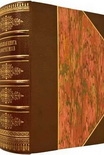The Magic Circle by Katherine Neville (13 inch ebook reader .TXT) 📗

- Author: Katherine Neville
Book online «The Magic Circle by Katherine Neville (13 inch ebook reader .TXT) 📗». Author Katherine Neville
More to our point, Lucky had discovered within the Hofburg two relics that dazzled him: a sword and a spear. These items which he believed to be so ancient and valuable were placed, strangely enough, off in a corner in a plain glass case, almost as if abandoned. The sword was long and curved, with a grip that appeared more medieval than ancient. The spear was small, black, and unobtrusive, with a crude brass-colored collar holding together the handle and shaft. We children looked at them for some time, until Earnest asked Lucky to tell us their significance.
“These pieces,” Lucky said in an almost dreamlike voice, “go back at least two thousand years, and possibly much more. It’s a well-known fact that they existed already in the time of Christ, and were very likely handled by his own disciples. It’s thought the sword was the one carried by Saint Peter, who wielded it in the garden at Gethsemane and cut off the the temple guard’s ear. Jesus told him to put it away, for ‘They that live by the sword shall die by the sword.’
“But the spear is even more interesting,” Lucky went on. “It was carried by a Roman centurion, one Gaius Cassius Longinus, who was under the command of Pontius Pilate. Longinus pierced Christ’s side on the cross with this very spear, to be certain he was dead, and they saw the liquid flow from the wound.…”
I could see Lucky’s long, pale face reflected in the glass of the case before us. He still seemed lost in a dream as he gazed upon these weapons. His pupils were dilated, exaggerating the hypnotic quality of those intense blue eyes beneath his thick dark lashes. But Pandora, who was standing at the opposite side of the case, broke the spell.
“On the printed card here inside the case,” she coolly informed us, “it says it’s reputed that this sword once belonged to Attila the Hun, and the spear to Frederick Barbarossa, great figures of Germanic history and of Teutonic myth. And it also says there’s a legend that whenever these two weapons have been combined in the hands of a single warrior, as they apparently were by Charlemagne, that same warrior has become the leader of all of the civilized world.”
“Is that why the Habsburgs rule over so many countries?” I asked her, excited by this peek into the mysteries of ancient legend. “Because they do own both of them right now, don’t they?” But Lucky, his trance apparently broken as well, answered for her.
“It says a warrior must possess them both,” he snapped. “The so-called Habsburgs are just like their name: a hawk’s-perch but not a hawk. They roost wherever they alight, and they feather their nest. These are not hunters, nor leaders of a proud, brave people. And merely possessing two of these objects, as I have learned, is insufficient for the kind of power you speak of. There are many such relics, ancient with the dust of the aeons—and only when all are reunited in one man’s hands will the world itself be transformed. I believe that such a time is nearly upon us.”
We children gazed with new respect at the two weapons in their glass case. But I privately wondered how such a profound transformation might take place if all the other “ancient treasures” were so crumbling, fragile, and unimportant-looking as these.
“If the time is nearly upon us,” said a soft voice from behind my shoulder, “then surely you must know what these other objects are that you seek?”
We turned, and I saw that the speaker was Pandora’s young cousin, my violin master Dacian Bassarides, who’d been so silent throughout our entire trip that we’d nearly forgotten him.
Lucky nodded his head in excitement. “I believe there are thirteen in all. Some are serving dishes, some garments, some tools or implements of war—and one gemstone, and a gaming board of sorts. Although my studies have told me how each might have been disguised throughout the ages, the last time I feel certain they were together was at the time of Christ: in other words, at the last New Age. That’s why I went to pursue my studies at Melk and then at Salzburg, for here on the river and high in the mountains of the Salzkammergut are the places in our land where the ancient peoples dwelt, and I knew the message I sought would be found near there. There is information there, written in the runes …”
“The runes?” I said uncomfortably. I saw that Laf not only had paused but seemed to have drifted off into another world.
“A manuscript written in runes. I suspect this is the ‘something’ your cousin Sam left you in his will,” said Laf, returning from the sea of his nightmare memories. “Lucky, or Adolf, was trying to assemble and decipher it even then, on the eve of World War One in Vienna—a task at which I feel confident he never completely succeeded. But someone else did.”
“I don’t think I got that from Sam,” I said, though I could hardly reveal that Sam was still alive or that I’d spoken to him of it. “But I did get a different document made of runes from a friend of yours, though I haven’t had a chance to look at—”
“A friend of mine?” said Laf. “What friend?”
“Wolfgang Hauser—a fellow Viennese—”
“Gavroche, what are you saying?” Even in the steam I could see Laf’s face grow pale beneath his leathery tan. “Wolfgang Hauser is no friend of mine. How could he obtain that manuscript? Where would he get it?”
I don’t know if my expression





Comments (0)